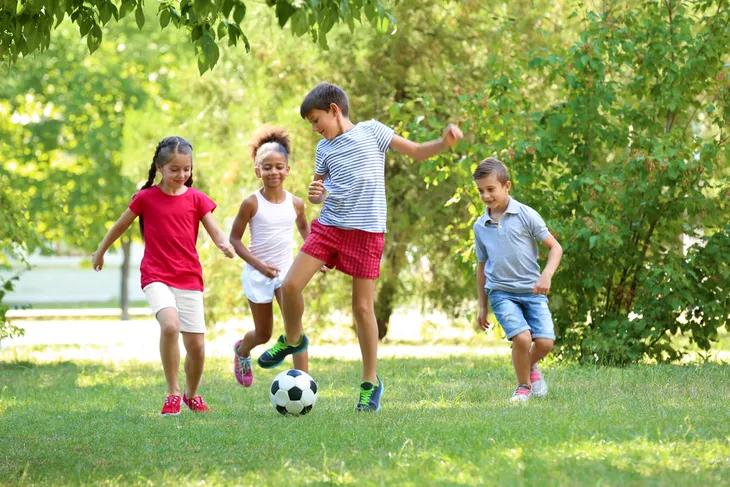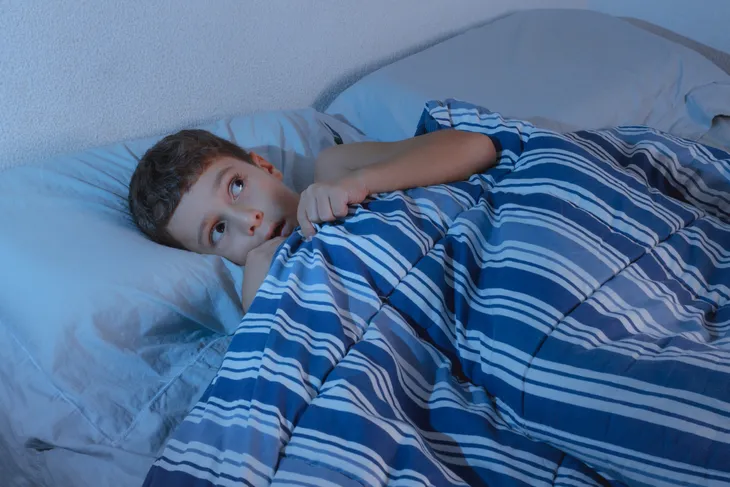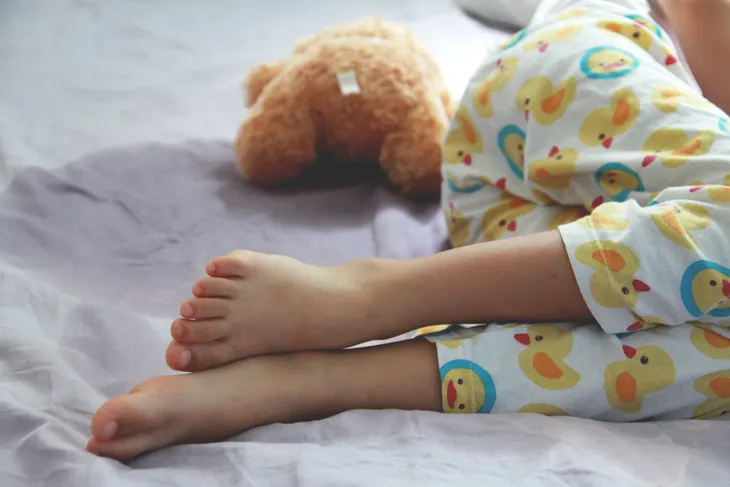For some of us adults, thinking about unpaid bills or a big meeting the next day can wake us up in a cold sweat in the middle of the night. Meanwhile, your kids may also experience restless sleep, but for (hopefully) entirely different reasons.
Luckily, many of the reasons your infant or toddler wakes up abruptly may be an easy fix (and they may just be going through a phase that will correct itself). Here are seven reasons your kid is not sleeping through the night, so you can help them get better rest (and hopefully get more rest for yourself too).
1. Unsuitable Room Temperature
While you may like to blast the furnace or layer up with blankets, this may not be such an ideal sleep situation for your toddler. BabyCenter.com explains that your body needs to naturally lower its core temperature to achieve sleep, so cranking up heaters is not always a good idea.
On the flipside of the coin, you also don’t want your little one to wake up shivering, it adds. Use a thermometer in the room and aim for a sleep temperature of 65 to 70-degrees Fahrenheit, suggests the source. In this climate, “Dress your toddler in a single layer of long pants and long sleeves,” it adds.
2. Too Much Activity Before Bed
Throwing a lot of stimulation at a child before bedtime can make it tough for them to wind down, notes MommyCrusader.com. These activities could be watching television, or something more physical like running around the house or playing “in rowdy ways,” it adds.
While you can avoid overstimulation close to bedtime (think quiet playtime or even some cuddles or a bath), the source talks about using “guided imagery” to tackle this problem. This involves pointing out each body part of your child – say their left arm – and then telling them to relax that part. Go in order from the feet to the head, it adds.
3. Night Terrors
This is a step beyond a nightmare, and you may have to just wait it out while your child calms down on their own. KidsHealth.org explains that although “night terrors can be alarming for parents who witness them, they’re not usually cause for concern or a sign of a deeper medical issue”.
A night terror is not “technically a dream” because it happens during a different sleep cycle than nightmares do, it adds. With that in mind, they may not be awake or fully awake, so just try to be there to comfort them if they need it. They’re not very common at all (only around 6-percent of kids aged 4 to 12 have them) but are more likely to occur in children that are ill, stressed out, overly tired, or taking a new medication, notes the source.
4. Nighttime Hunger
Have you ever slept-walked to the fridge in the middle of the night to grab a piece of pie? Well, even if you haven’t, toddlers can get the same midnight cravings as adults do after they’ve already hit the hay.
If this pattern of waking up and wandering occurs regularly for your child, you may want to focus a little more on what they’re having for dinner. Although it’s a struggle to get toddlers to eat sometimes, having a bit of patience and giving them food that you know they’ll like can go a long way, notes Livestrong.com. Don’t experiment with new foods too much if your kid is not eating supper. “Save the new flavors for lunchtime when your child is not going to need a full tummy for the next 10 to 12 hours,” notes the source.
5. Wet Pajamas or Bedding
Kids will wet themselves or their bed in their sleep at some point – admit it, you probably did too, even if it seemed so long ago. However, if it’s happening regularly for your child, it can cause them to lose significant sleep (not to mention your own rest being disrupted) and this can lead to some all-around grumpiness and lack of alertness come morning.
Today’s Parent magazine suggests stepping up a diaper size to hold more liquid through the night, or trying a different brand that may be more absorbent. If you prefer cloth diapers, then add “one or two hemp or cotton inserts” to them retain moisture, it adds. At the same time, make sure your little one isn’t chugging a lot of water, juice or milk past 5 p.m. Get them into the habit of quenching their thirst earlier in the day.
6. Teething
This is another one of those developmental phases that you’ll just have to wait out, but there are things you can do to help your little one cope with the associated pain that’s waking them up. If you don’t see any teeth yet poking through, red cheeks, heavy drooling or excessive sucking or biting, and low-grade fever are all signs of coming chompers, explains BabyCentre UK.
Before resorting to pain relief gels for kids, you can try using a silicone teething ring (try putting it into the fridge for a while first to make it cooler and more soothing), or even gently massage their gums with your finger, it adds.
7. Snoring
While we usually associate “sawing a log” with adults, the same problem can occur in younger children and can wake them from a peaceful sleep. In fact, “Many if not most children snore on occasion, and about 10 percent or more snore on most nights,” according to The Sleep Foundation.
This problem usually occurs in children that are 3-years or older, it adds. Pay attention to whether the snoring seems unusually loud or prolonged, as this could be a sign of a respiratory infection or even sleep apnea, which can actually affect their behavior and learning abilities (sources point out that some children diagnosed with ADHD might actually have sleep apnea).










